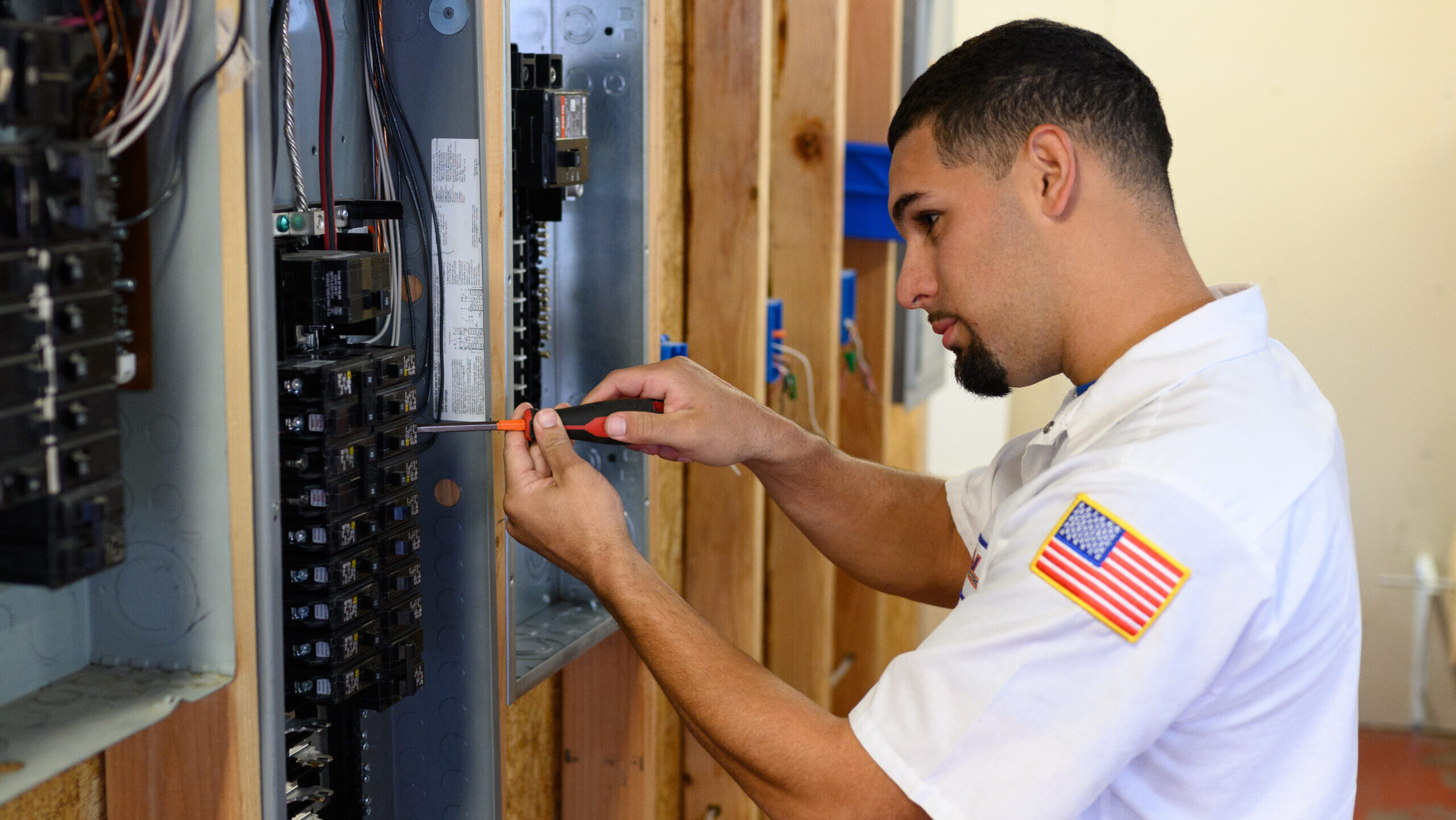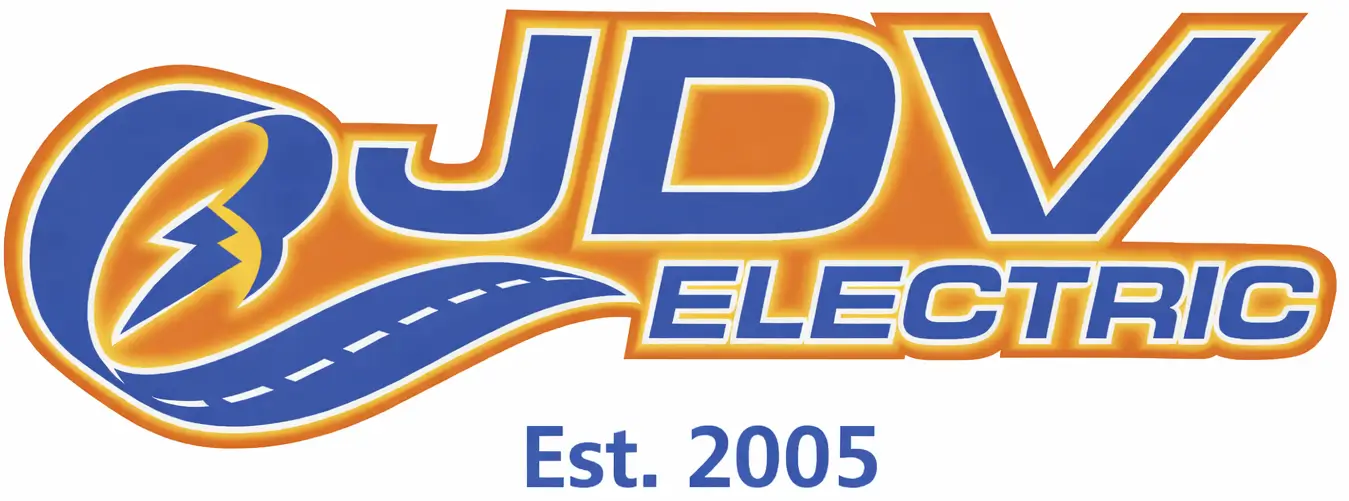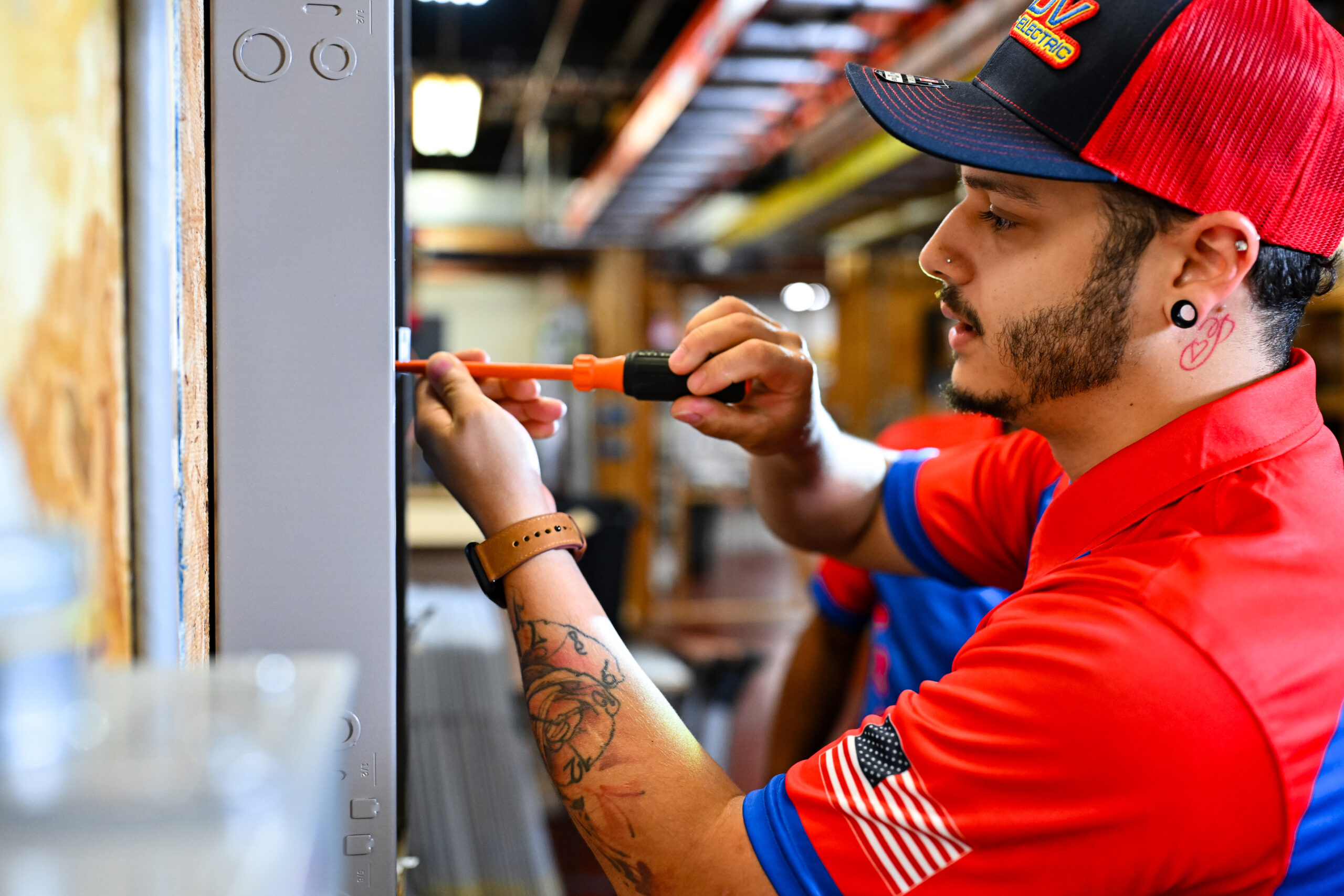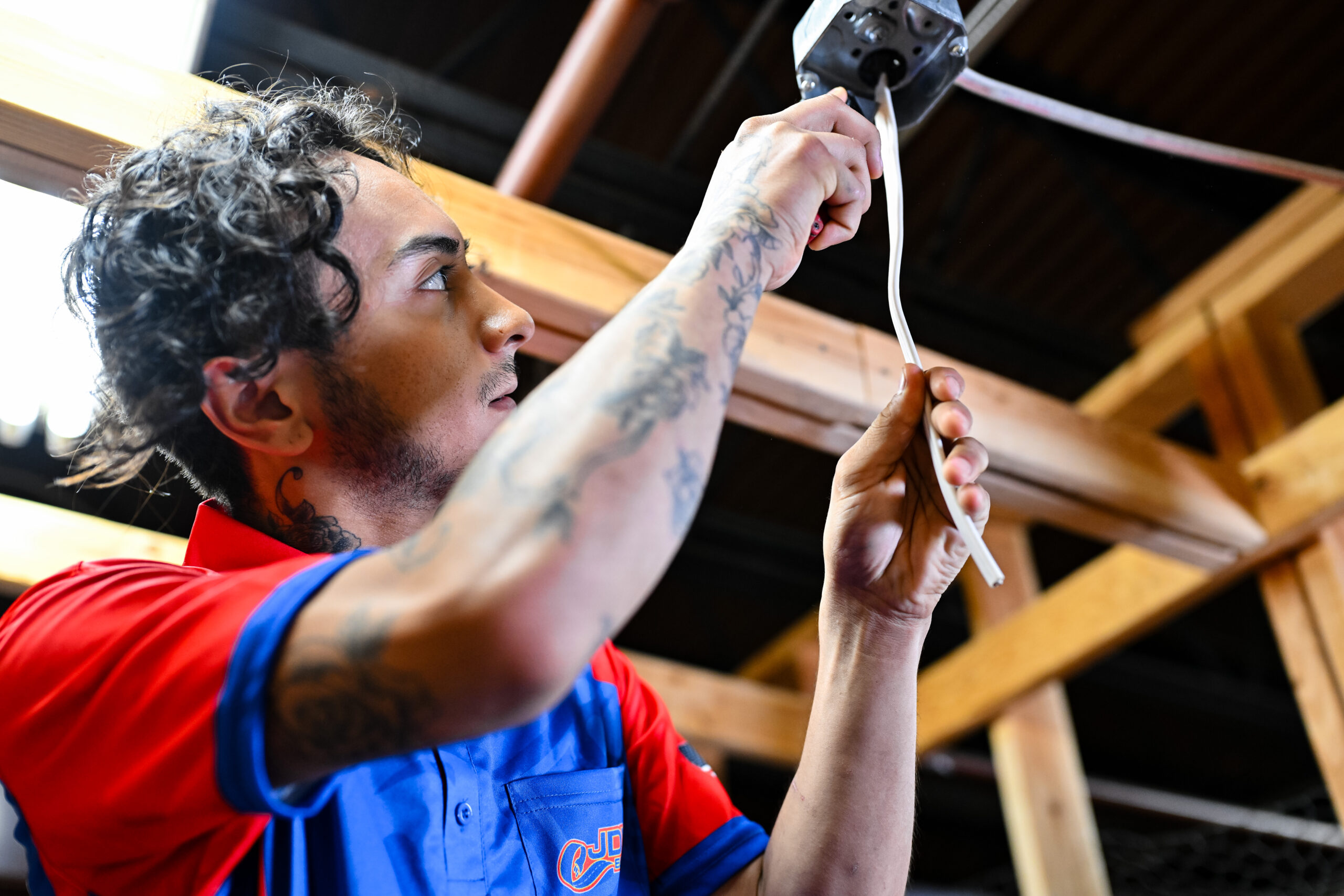Why Your Circuit Breaker Keeps Tripping
Electrical
The safety of your home’s electrical system is critical, and your circuit breaker works hard to protect your home from a dangerous excess of electricity.
When your circuit breakers are continuously tripping, there’s usually an underlying problem with your electrical system. Common issues include a circuit overload, power surge, ground fault, or short circuit.
1. Overloaded Circuits
Circuit overloads happen when you try to get more electricity from that circuit than it can handle, causing the circuit to overheat and trip. Signs that your circuit may be overloaded include:
- Burning smells
- Warm to-the-touch outlets
- Discoloration or burn marks on switches
- Flickering lights
To prevent overloading, try to distribute your electrical devices to various circuits, especially those that use significant power or are older and less efficient.
3. Short Circuit
What exactly is a short circuit? A short circuit happens when a live and neutral wire make contact, causing a sudden flow in the current. This excess electricity can cause wires to overheat and may start a fire. When it comes to short circuits, the issue can be in either your electrical system or a certain appliance.
To determine the root of the issue, it’s best not to troubleshoot on your own. Doing so could lead to significant damage to your electrical system or appliance and could result in physical injury. Instead, have a licensed electrician inspect the circuit to suggest any necessary repairs to your wiring or electrical panel.
4. Ground Fault
A ground fault occurs when a live wire touches a ground wire, leaving a serious risk for electrocution, especially in areas that may have damp conditions. That’s why the National Electrical Code requires GFCI, or ground-fault circuit interrupter, outlets in kitchens, bathrooms, and outdoors.
These specific outlets work by monitoring the voltage in the wires and stopping the current if there’s contact between a hot and ground wire. With its ability to detect these issues even faster than a regular circuit breaker, GFCI outlets are key to your home’s safety.
2. Power Surge
A circuit may also continue to trip after a power surge or sudden spike in voltage. These can happen due to lighting striking a power line or, more often, when power is restored after an outage.
These sudden jolts of electricity are dangerous and can seriously damage your expensive appliances. An affordable way to protect yourself from this issue is to use a point-of-use or whole-home surge protector to divert surges and protect your valuable electronics.
Choose JVD Electric for All Your Electrical Needs in Delaware County
For fast and reliable electrical services for your circuit breaker and more, trust JDV Electric. We’re here to ensure that your home’s electrical system works safely and efficiently to give you the peace of mind that your home, family, and valuables are protected.
Our electricians deliver unparalleled honesty and integrity. With fully stocked trucks, ongoing technical training, and an A+ rating from the BBB, you can rest assured that you’re in capable hands with the pros at JDV Electric.
Call us today for comprehensive electrical services in Delaware County.
Universal Website Form - consolidated 2026
Created single source form across entire website to streamline contact information being entered into the website and site location it was coming from.


Sign Up for Our Safety &
Savings Plan
Annual Electrical Safety
Inspections & More
- Lifetime installation and 2-year repair warranties
- 15% discount on products and services
- Exclusive specials
- No service fees
- Transferrable plan if you sell your home




